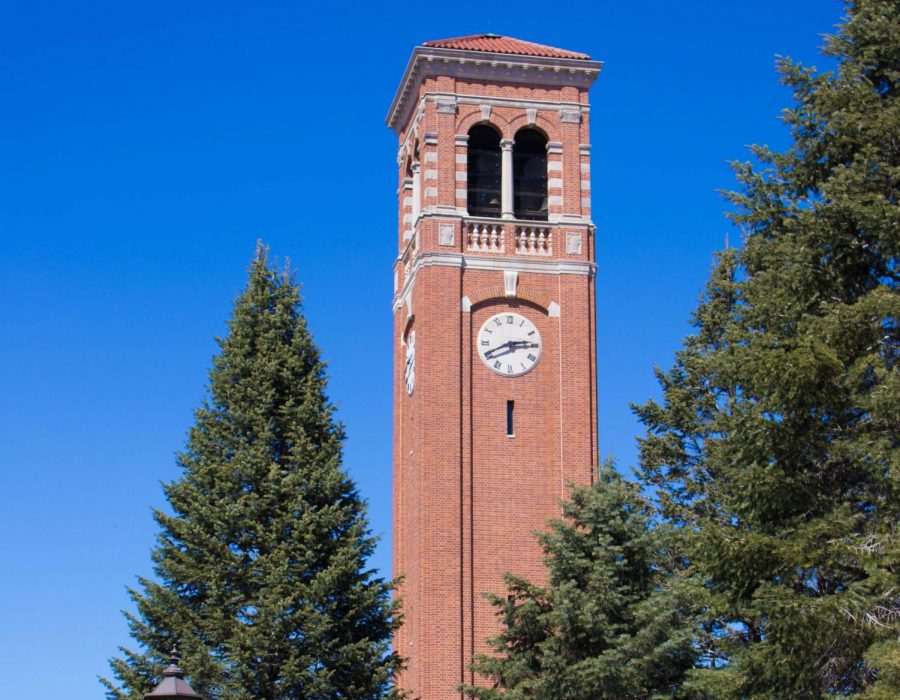Summer orientation shifts to online in wake of COVID-19
Apr 22, 2020
During UNI’s two-day orientation sessions throughout the summer, incoming Panthers typically meet with advisors, explore the campus, stay overnight in a dorm and register for fall classes.
This summer, due to the social distancing restrictions imposed by COVID-19, those sessions will take place online.
Katie Milne, Assistant Director of Student Success and Retention, said online orientation is still in the planning stages, and incoming students will receive more information by May 11. No matter what, though, she emphasized that students will still have orientation “in real time” on the day for which they originally signed up. They also will still meet one on one with an academic advisor to select classes, make peer connections with current and incoming students and receive financial aid information.
“Those are our priorities that we’ve committed to [incoming students] will still be a part of their orientation experience,” she said.
In moving orientation online, Milne and her team have to contend with the reality that not all students have access to the necessary technology. For those students, the team plans to follow their typical approach for students whose schedules or other circumstances prevent them from attending an in-person orientation, something they already have experience with implementing in non-pandemic years.
“We already have a process in place for what we call individual orientation, for example, for a student who is at military boot camp all summer, we offer them a one-on-one orientation,” Milne said. “It’ll be a similar process for anyone who has technology concerns. We will work with them one-on-one and most likely over the phone.”
Throughout the entire process of planning and executing an online orientation, the Student Success and Retention staff have had help from the UNI students who were hired as 2020 Summer Orientation Staff in fall 2019. Although their role will look different than in typical years, these students are still playing an active role in this summer’s unique orientation. They’re also helping with the April and May transfer student orientations, which have also been moved online. Milne and her colleagues plan to use these earlier sessions as a trial run for the summer sessions to come.
“We want to live through these first two and see how things work and how students respond, what’s working for them, so that then that can influence our path forward,” she said. “It’s truly an evolving situation.”
As for fall orientation programs such as UNI Now, the university is hopeful that they can proceed as normal.
“UNI Now will be more important than ever because it will truly be our new students’ first welcome to campus,” Milne said.
De’Carlos Anderson, Assistant Director of Student Success and Retention, heads the Jump Start program, an extended fall orientation program to help underrepresented students transition to UNI. As with UNI Now, Anderson said that he’s planning for an in-person Jump Start. If COVID-19 restrictions necessitate, both fall welcome programs would be moved online, but Anderson hopes it doesn’t come to that.
“A program like Jump Start, it won’t be as beneficial if it’s online,” he said. “We would definitely have to change it up, think of some different ideas about how we would kind of alter it, [but] four days online would be tough to do.”
Registration for Jump Start 2020 opened in February, and about 100 students have already signed up, according to Anderson. However, he said that the program usually gains many participants from students who sign up at summer orientation. With those sessions online, recruitment will be more important than ever.
He’s particularly concerned about the phenomenon in higher education known as “summer melt,” when students who qualify and register for college ultimately end up not attending in the fall — they “melt away” and never arrive on campus. The problem is especially prevalent in low-income minority communities, where students lack resources, guidance and encouragement. Programs such as Jump Start are specifically designed to target those students, but with COVID-19, he anticipates that “summer melt” may be more severe this year.
“We are more concerned with the summer melt just because of everything that’s going on,” Anderson said. “As much as we can, we want to keep students engaged until we get to campus, as much outreach as we can.”
While the shift to online isn’t ideal, Milne said that the work the university has done to prepare for online orientation has introduced positive innovations.
“Our IT team has really rallied behind the importance of orientation and what we need to accomplish in a really short time span, and there are really creative and awesome solutions of how we can connect with students,” she said. “It’s prompting us to think about how we connect with students throughout the summer and not just on two days when you come to campus for orientation. We’re going to add some new things that have some possible continuation even beyond COVID-19.”
“Things will always be different, but if nothing else, we are prepared for if we have to move everything online again in the future,” Anderson agreed. “I’m optimistic that we’ll get things as back to as normal as possible.”
For more information regarding orientation, visit success.uni.edu/virtual-orientation.









